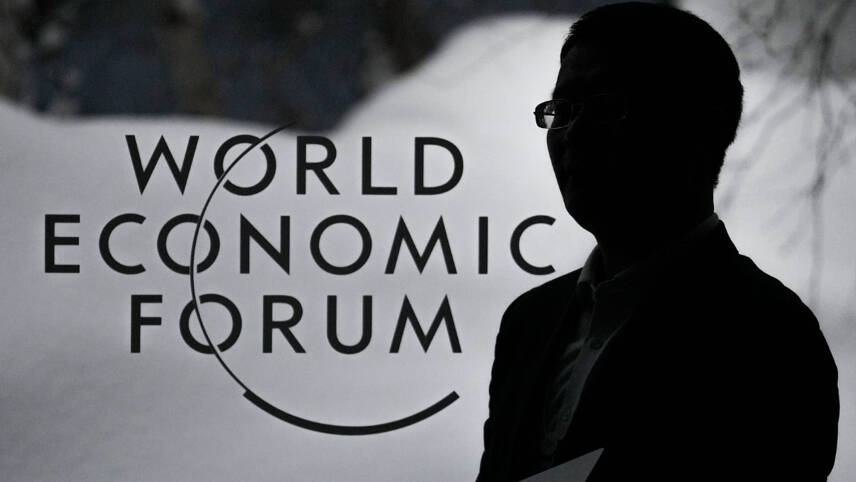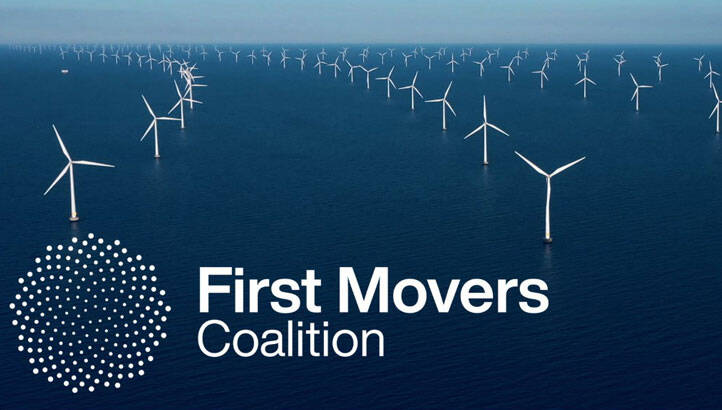This premium content is exclusive to edie Members.
To find out more about edie Membership, please click below.
If you are an existing member, login here

Image: WEF / Valeriano Di Domenico
Every January since 1971, hundreds of world leaders, policymakers, philanthropists and business decision-makers have descended upon Davos to jointly focus on the most pressing global issues for the year ahead and shape government and industry agendas.
‘Rebuilding Trust’ was the selected theme for Davos 2024. Attendees from 15-19 January grappled with issues including fake news, artificial intelligence (AI) and waning public confidence in corporates and governments after decades of slow progress addressing issues like social inequality, nature loss and climate change.
While environmental issues may have taken something of a back seat this year with eyes on live conflicts in Russia and the middle east, this gathering of executives and the super-rich does tend to set the tone for the coming months in the green economy. Here, we round up ten of the summit’s biggest announcements set to impact sustainable business in 2024.
1) Risk report sets the scene

Pictured: Flooding in Kerala, India, in 2018
The WEF releases an annual risk prediction report on the eve of Davos each year, which is a handy scene-setter and intended to help focus hearts and minds on the most pressing challenges at hand. These reports rank global risks in terms of likelihood and potential severity, based on the input of more than 1,000 experts.
This year’s edition reveals that misinformation and disinformation are perceived to be the biggest near-term risk, with social polarization also in the top three at third. At second is extreme weather.
Looking out to ten years, experts see five of the top ten risks as environmental. Extreme weather rises to the top of the list while ‘critical change to Earth systems’ comes in at second. This term was not mentioned in the 2023 WEF report but refers to the passage of irreversible tipping points relating to climate, nature and weather systems.
Concerningly, experts in the private sector were less likely to view environmental risks as imminent in the near-term than their counterparts in policymaking and civil society.
You can read edie’s coverage of the report here and access it in full here.
2) WEF revisits approach to growth with green focus

Image: WEF / Benedikt von Loebell
Sustainability professionals will be acutely aware of the fact that business-as-usual is not compatible with efforts to maintain planetary boundaries and keep the Paris Agreement within reach. But decoupling financial growth from growing environmental impacts is a challenge for most firms, yet ‘degrowth’ remains an unthinkable theory for many executives.
Davos has focused on ‘stakeholder capitalism’ since 2020 and this time around, the WEF published a new ‘Future of Growth’ report arguing the case for a look at financial growth beyond GDP, factoring in issues such as environmental sustainability, social inclusion and justice, plus accelerated innovation.
The Forum will build on the report with a two-year ‘Future of Growth’ programme, convening economists and policy experts to chart a new narrative and new actions to intrinsically link economic growth and sustainability with the broader sustainable development agenda.
“Reigniting global growth will be essential to addressing key challenges, yet growth alone is not enough,” said Saadia Zahidi, the WEF’s managing director.”[We need] a new way for assessing economic growth that balances efficiency with long-term sustainability, resilience and equity, as well as innovation for the future, aligning with both global and national priorities.”
3) PwC CEO survey reveals lack of preparation for climate risks
PwC releases results of a global survey of 4,000+ chief executives each year to coincide with Davos. This year, 45% of those polled said their business is unlikely to exist in a decade.
Climate was identified as a core driver of the need for business reinvention along with macroeconomic volatility and technological disruption.
Around one-third of those surveyed expect climate change to necessitate shifts in how they generate value in the next three years. Many are foreseeing changes to their supply chains and preparing to offer different products and/or services.
But that leaves two-thirds of businesses with no major plans for climate-related innovation in the near future. Changes in customer preferences, alterations to regulation and moves from competitors are seen by most chief executives as presenting nearer-term and more severe risk to viability than the climate crisis.
Another cause for concern is that the survey’s findings suggest that many businesses do not yet properly understand climate-related risks nor embed them into core strategy planning.
Around half (47%) of the businesses polled have begun enacting initiatives to improve adaptation to physical climate risks. But most of the remaining firms, 29% of the total, have no plans to act in response to these issues. Some of these firms, PwC noted, may be leaving this responsibility in the hands of their insurers.
You can read edie’s coverage of the survey here and access its findings in full here.
4) First Movers Coalition grows, sparking $16bn annual cleantech spend
The First Movers Coalition was established by the WEF and US Envoy for Climate John Kerry in 2021. Its aim is to accelerate the low-carbon transition in hard-to-abate sectors.
In its infancy, the Coalition garnered the support of 29 founding member corporates across sectors including aviation, shipping, trucking, steel, cement, chemicals and aluminium.
At Davos, it was confirmed that Coalition membership has grown to 96 organisations. Collectively, they have more than 120 commitments to purchase near-zero emission goods and services by 2030, representing $16bn in annual market demands.
Recent Coalition joiners include Salesforce, Qatar Airways, DP World Limited, Velux and the Coca-Cola Company.
Kerry said “As members participate in offtake agreements and invest in decarbonisation projects in support of their Coalition commitments, they continue to give confidence to this market to develop faster. This approach is pivotal in expanding the use and availability of the breakthrough technological solutions that will enable the deep decarbonization of heavy-emitting sectors.”
5) $100bn moonshot investment target set for voluntary carbon markets
Carbon markets were a hot topic all throughout 2023, from an exposé of Verra forest credits in January to debates around climate benefits and impacts on Indigenous Communities and at COP28 in December. Proponents of credits argue that they are essential to delivering net-zero and that issues such as fraud and double-counting can be overcome.
Two of these proponents are XTCC, the world’s first exchange-traded investment product for carbon credits, and Zero13, an AI and blockchain-enabled carbon platform. The firms signed a statement of accord at Davos, targeting $100bn of capital market investment into high-integrity carbon credits.
This builds on the convening of businesses with more than $1tn of investment power at COP28; the level of the targeted scale-up is significant. As such, the accord will be open for other signatories. Time will tell how it grows.
The Taskforce on Scaling Voluntary Carbon Markets is predicting that their scale in 2050 may be up to 160 times larger than in 2020.
6) Businesses and philanthropists aim to unlock $50bn for climate and nature
Davos wouldn’t be Davos without a major private-philanthropic funding commitment related to the environment. The WEF-convened ‘Giving to Amplify Earth Action’ initiative, at launch, had the intention to mobilise $2bn of catalytic capital to climate and nature solutions by 2030. Now, it has its sights set on unlocking $50bn in the longer term.
This finance will be unlocked from a mix of public, private and philanthropic sources, with the WEF’s networks including more than 1,000 corporates and 100 philanthropic institutions. The international Green Climate Fund is the initiative’s ‘anchor partner’, overseeing financial flows.
To identify where the money should be invested, the initiative is launching a ‘big bets’ accelerator with a call to action to find and support innovative programmes in five areas: nature, industry, energy, food and climate intersections.
“Partnerships with businesses and philanthropies have never been more important, and concessional capital like that from the Green Climate Fund gives financiers across sectors the confidence they need to support the aspirations of developing countries,” said the Fund’s executive director Mafalda Duarte.
7) 320+ businesses pledge enhanced nature disclosures
The Taskforce on Nature-related Financial Disclosures (TNFD) published its finalised set of recommendations for corporate nature reporting last September at Climate Week NYC. This framework is intended to harmonise corporate disclosures on nature-related risks and impacts across value chains.
At launch, one business – GSK – confirmed its intention to produce a TNFD-aligned report in 2026 and encouraged other firms to follow suit.
This certainly happened at Davos; 320 businesses signalled their intentions to fully adopt the recommendations at a briefing on Tuesday (16 January). Collectively, they represent $4trn in market capitalisation and $14trn in assets managed.
Notable companies pledging to adopt the recommendations include Bank of America, BBC, GSK, Holcim, IKEA, Kering, OVO, PwC, Sony, Suzano and Veolia. Read edie’s full story here.
8) Mining giants outline joint ‘net-positive’ vision
The International Council on Mining and Metals (ICMM), which comprises more than 20 of the world’s largest mining firms, launched a new set of principles aimed at delivering no net biodiversity loss at all mine sites against a 2020 baseline, aiming for nature-positive impacts in the long-term.
ICMM president Rohitesh Dhawan said: “The mining industry owes its very existence to nature. At a time when the health of our natural world is in peril yet the demand for critical minerals is set to soar, we have committed to significant collective action to help create a nature-positive future.”
The principles break down key parts of the UN’s Biodiversity Treaty, ratified in December 2022, to actionable focus areas for mining firms. The Treaty convenes nations in a commitment to halt nature loss this decade and bring about rapid restoration at scale thereafter.
You can read edie’s full coverage of the ICMM commitments here.
9) Healthcare firms collaborate to source renewables in China
The Sustainable Markets Initiative (SMI) revealed at COP28 in Dubai last month that some of the world’s largest healthcare businesses were in advanced discussions with energy providers in China and India to scale renewable power across their supply chains.
These two nations are key markets for pharmaceutical manufacturing, estimated to account for up to 50% of materials for medicines. Moreover, their energy demands are growing rapidly as they grow and industrialise, making it imperative to transition from coal to clean energy.
This week at Davos, the SMI confirmed that fiver of its member organisations have secured an industry-first multi-party agreement to procure renewable electricity in China from Envision Energy, one of the country’s largest renewable energy companies.
AstraZeneca, Lonza, Novartis, Novo Nordisk and Roche have signed a three-year renewable energy supply agreement covering 200GWh of electricity annually, with power to be generated and used locally in Jiangsu, Guangdong, Shanghai and Beijing.
10) CEOs and ministers launch coalition for renewables in developing countries
To that end, the WEF this week launched a new network of chief executives and energy ministers to co-develop and jointly implement solutions to increase green energy capital flows to developing nations. Businesses will be able to advise ministers on policy changes while also supporting the implementation of new business models and finance mechanisms.
Ministers from Colombia, Egypt, India, Japan, Malaysia, Morocco, Namibia, Nigeria, Norway, Kenya and South Africa have signed up to the network in the first instance.
Roberto Bocca, who heads up the WEF’s Centre for Energy and Materials, said: “Unlocking this financing today is not only a key first step towards a secure and equitable energy system tomorrow, but represents a clear opportunity for businesses, as emerging economies account for the lion’s share of the global population.”




Please login or Register to leave a comment.